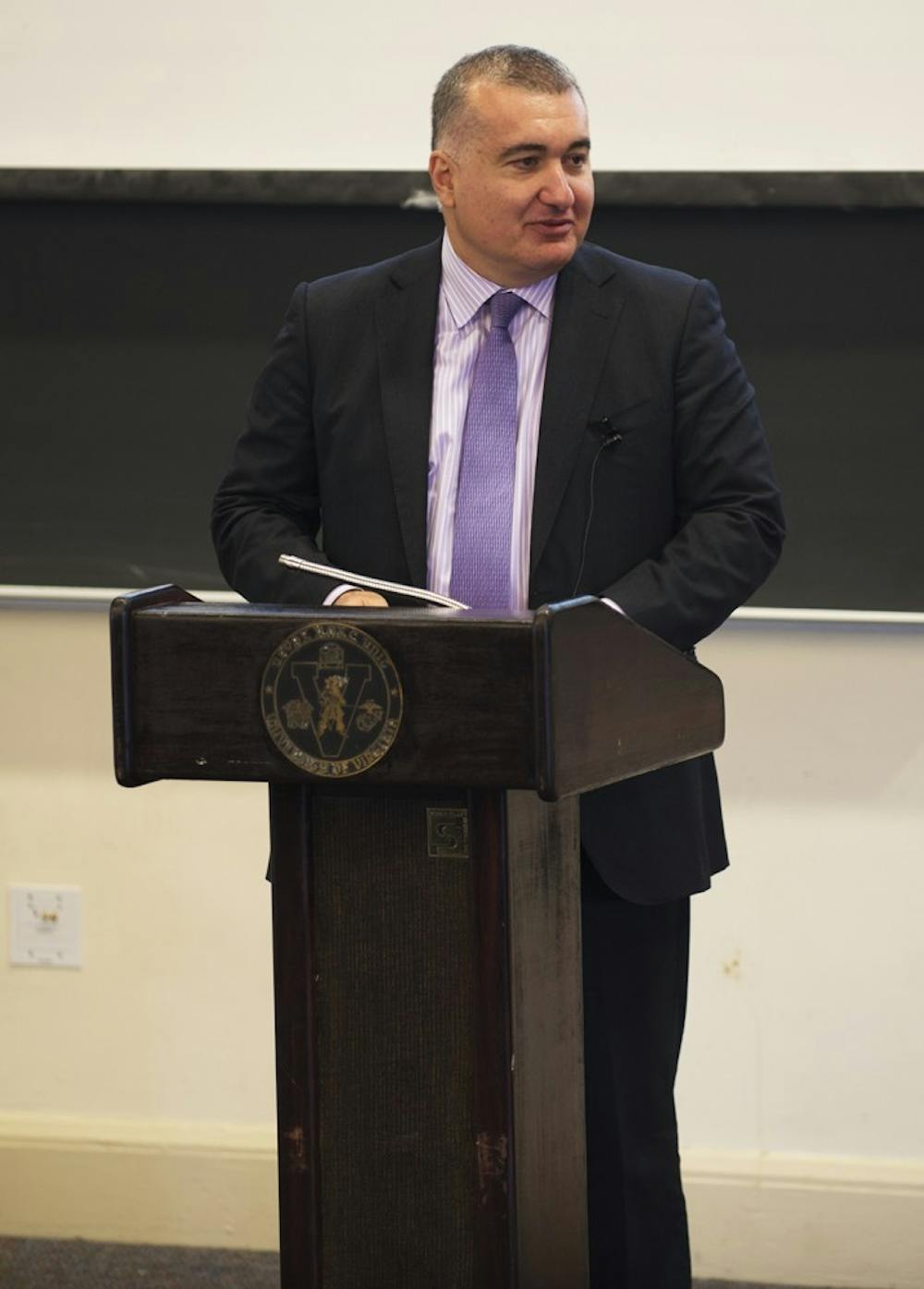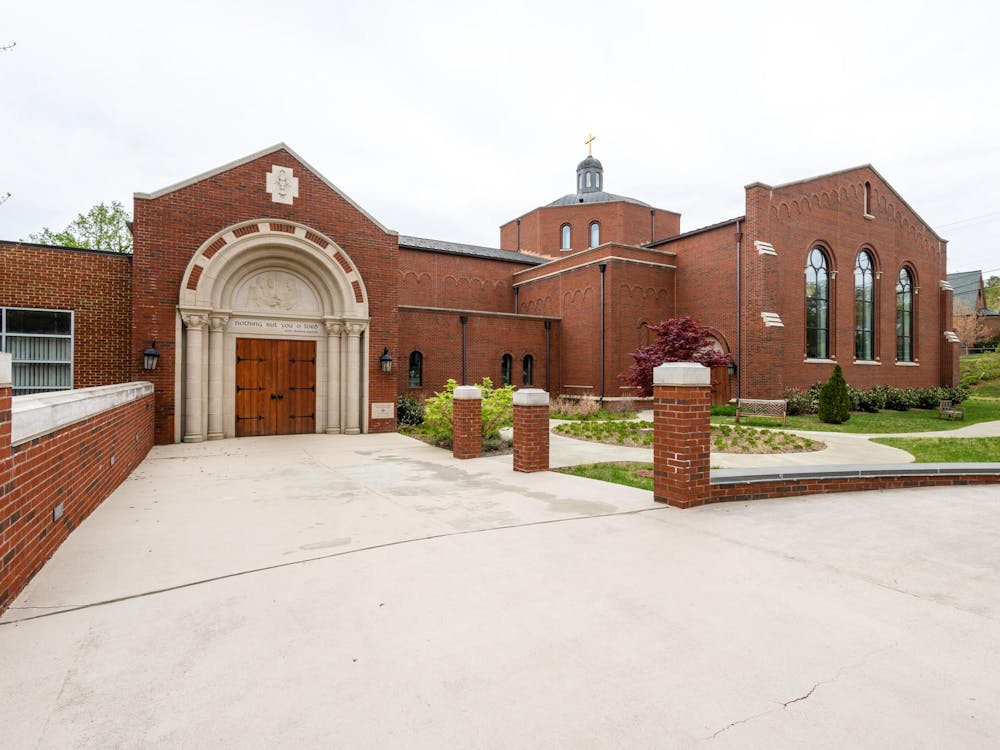The University hosted Elin Suleymanov, the Azerbaijani ambassador to the United States, Thursday. The ambassador presented to Politics Prof. Allen Lynch’s Russian Politics course, an event organized by the University Center for Russian, East European and Eurasian Studies.
The event was spearheaded by fourth-year College student Narmin Huseynova, the University’s only Azerbaijani undergraduate student. Huseynova opened the presentation by introducing Suleymanov and saying it had been her dream to bring someone from Azerbaijan to the University to better the community’s understanding of her home country.
Her introduction was followed by a brief background given by Lynch. After Suleymanov gave a brief presentation, he opened the floor to questions from the audience.
In his presentation, Suleymanov analyzed the nation’s geography as it relates to its political history, particularly the country’s role as the point of connection between three distinct historical influences — the northernmost point of the Persian Empire and the Middle East, the southernmost point of the Soviet Union and the easternmost point of the Ottoman Empire.
He also addressed the integral role Azerbaijan played in the regional economy of the Caucasus region, initially stirring the audience by pointing out that Azerbaijan is the only nation which shares borders with both Iran and Russia.
“We have created an identity around [the different points of influences],” Suleymanov said. “If we had not embraced the diversity of our region, we would be exposed to constant conflict.”
Suleymanov also discussed the history of the nation’s oil reserves, the epicenter the regional economy. Especially topical was the 1994 Public Sharing Agreement Azerbaijan signed with western oil companies, which he said has remained abnormally buoyant in the last decade.
“It’s not about the resources you have,” Suleymanov said. “It’s about how you use them.”
Addressing the status of current US-Azerbaijan relations, he said the two countries are in a peculiar situation due to the recently revamped tensions between the United States and Russia, as well as the turbulent status the U.S. has with Iran. Suleymanov said a healthy relationship between the U.S. and Azerbaijan had emerged after the establishment of a democratic government in the post-Soviet world.
He also discussed the contribution of their shared military role in Afghanistan — where they are one of a select few nations who have retained armed forces — as well as their contribution to the “Iraq peacekeeping mission.”
Before answering questions, Suleymanov compared the Russian aggression in Ukraine to the “tragedy” his nation currently faces with neighboring Armenia regarding the dispute over the possession of the Nagorno-Karabakh region. The region is internationally recognized as Azerbaijani land but occupied by Armenian troops.
“We are living in difficult and unstable times. [The dispute] is the greatest threat to regional stability,” Suleymanov said.
Huseynova said the event served as a good way to communicate to other students the international position Azerbaijan occupies and the political and social history of the nation.
“Very few people [here] know about Azerbaijan,” Huseynova said. “I want students to learn more about where I come from.”
Huseynova said her native country is one of the most successful former Soviet nations, citing its consistent economic growth and commitment to democratic ideals. She credits part of their successful development as a nation since the dissolution of the Soviet Union in the late 20th century to the establishment of the initial republic before the onslaught of Soviet control.
“It was really important for the future [of the nation] to have what we had in the past,” Huseynova said. “It’s important to realize that a country can have democratic ideals without being part of the West itself.







